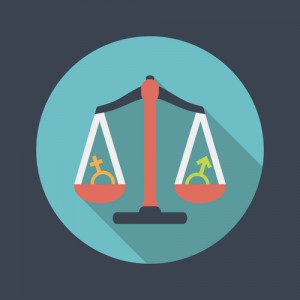Nevada ratifies Equal Rights Amendment decades after deadline

Image from Shutterstock.
Nevada’s legislature has ratified the Equal Rights Amendment decades after the deadline for doing so, although it brings the tally to two states shy of adoption if Congress were to extend the deadline, the Associated Press reports.
Congress sent the proposed amendment to the states in 1972 for ratification by their legislatures, with a deadline of March 1982. The measure would have the Constitution expressly guarantee equal rights for women. By 1977, 35 states ratified it, and now Nevada makes 36 of the required 38 for adoption.
The Nevada legislature had rejected the measure three times in the 1970s. Now, Nevada is among four states with the highest percentage of female state legislators. The measure passed largely along party lines in the state Senate and Assembly, the Las Vegas Review-Journal reports.
“Nevada today reminded us of the bittersweet progress when it comes to gender equality—how far women have come and still how far we have to go in the fight for equal rights,” Democratic Sen. Catherine Cortez Masto, who was elected as Nevada’s first female U.S. senator in November, told the AP.
Opponents this time used some of the same criticisms made a century ago when women gained the right to vote and again when the ERA was proposed in 1972.
Senate Minority Leader Michael Roberson, in the AP story, said the amendment could possibly reverse U.S. Supreme Court decisions that the right to an abortion does not entitle use of public funds.
Sen. Joe Hardy, R-Bolder City, said he believes in equality, but the differences between men and women cannot be legislated. He spoke of his mother, wife, daughters and granddaughters, the Las Vegas Review-Journal reports.
“I cannot pretend to think by legislation I can become equal to them,” said Hardy, a physician and member of the Church of Jesus Christ of Latter-day Saints.
A North Las Vegas Democrat who pushed for the resolution, Sen. Pat Spearman, said, “Women’s rights are human rights, and human rights are women’s rights. Let me be clear once again, this bill is about equality, period.”
The ERA was seen as a sure thing in 1972, until Phyllis Schlafly, describing herself as a housewife, set about organizing opposition to it, raising fears of family breakups, non-gender restrooms and women in military combat, the New York Times reported in Schlafly’s obituary last September. Schlafly’s passion and organizing skills were credited with shutting down adoption of the proposed amendment.
Write a letter to the editor, share a story tip or update, or report an error.


